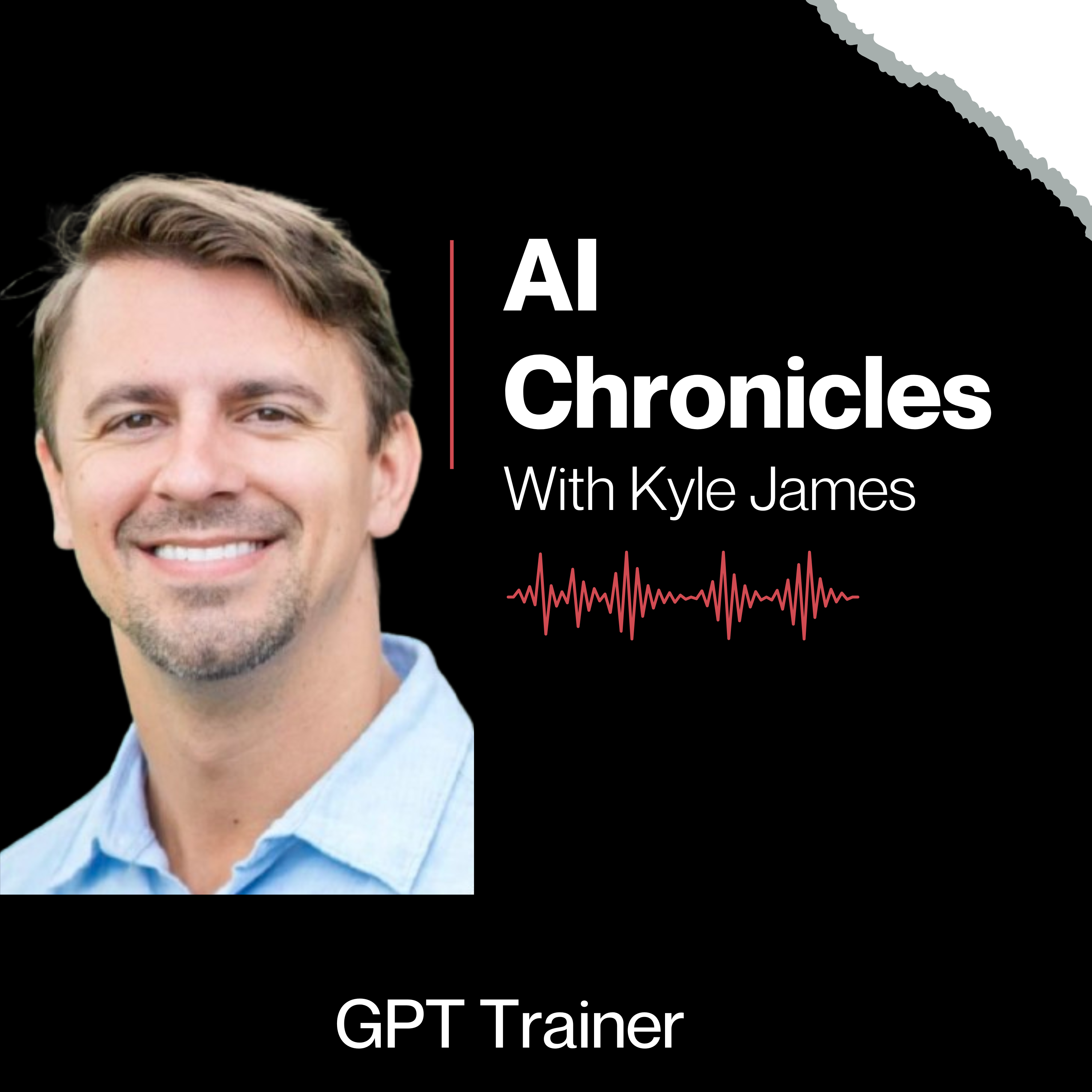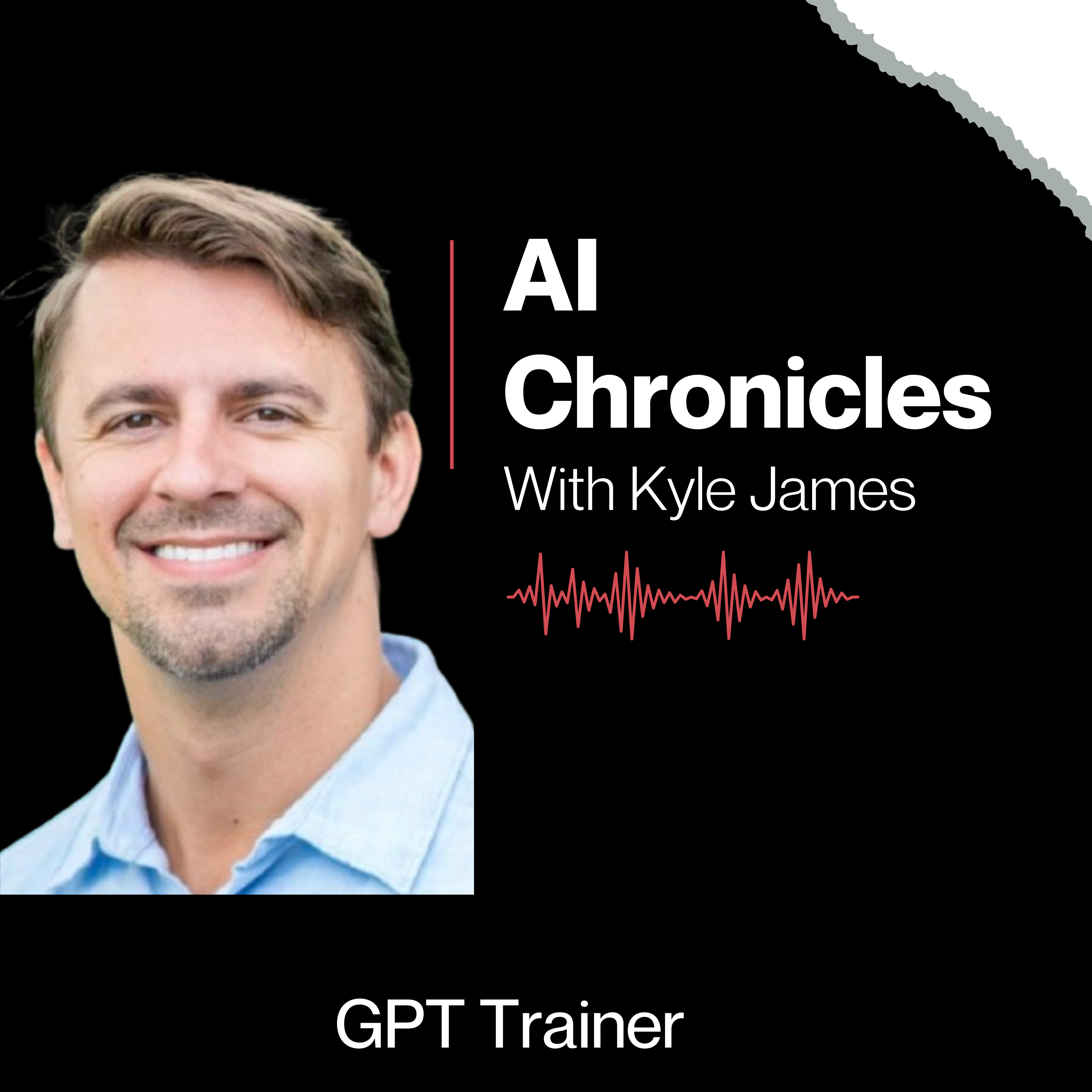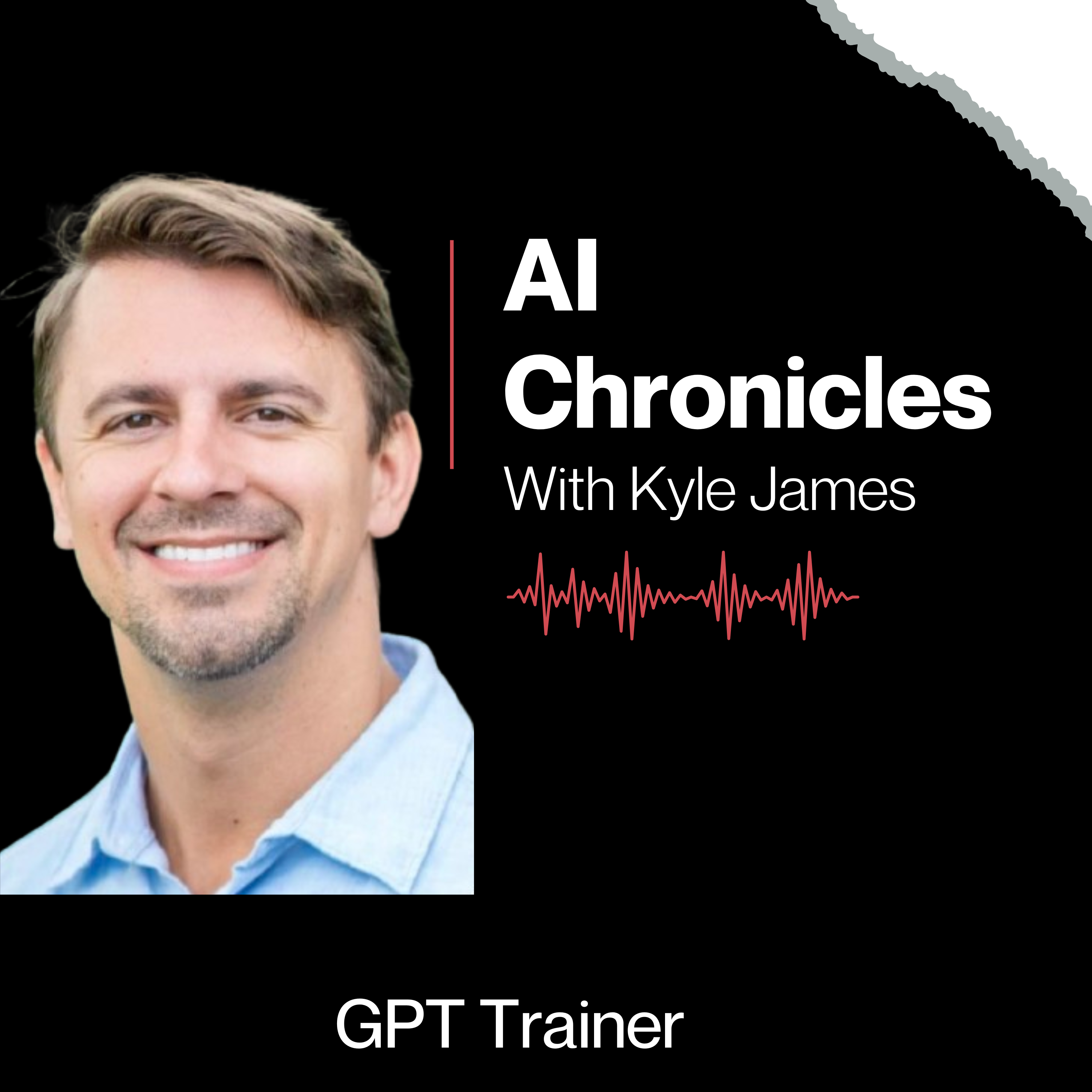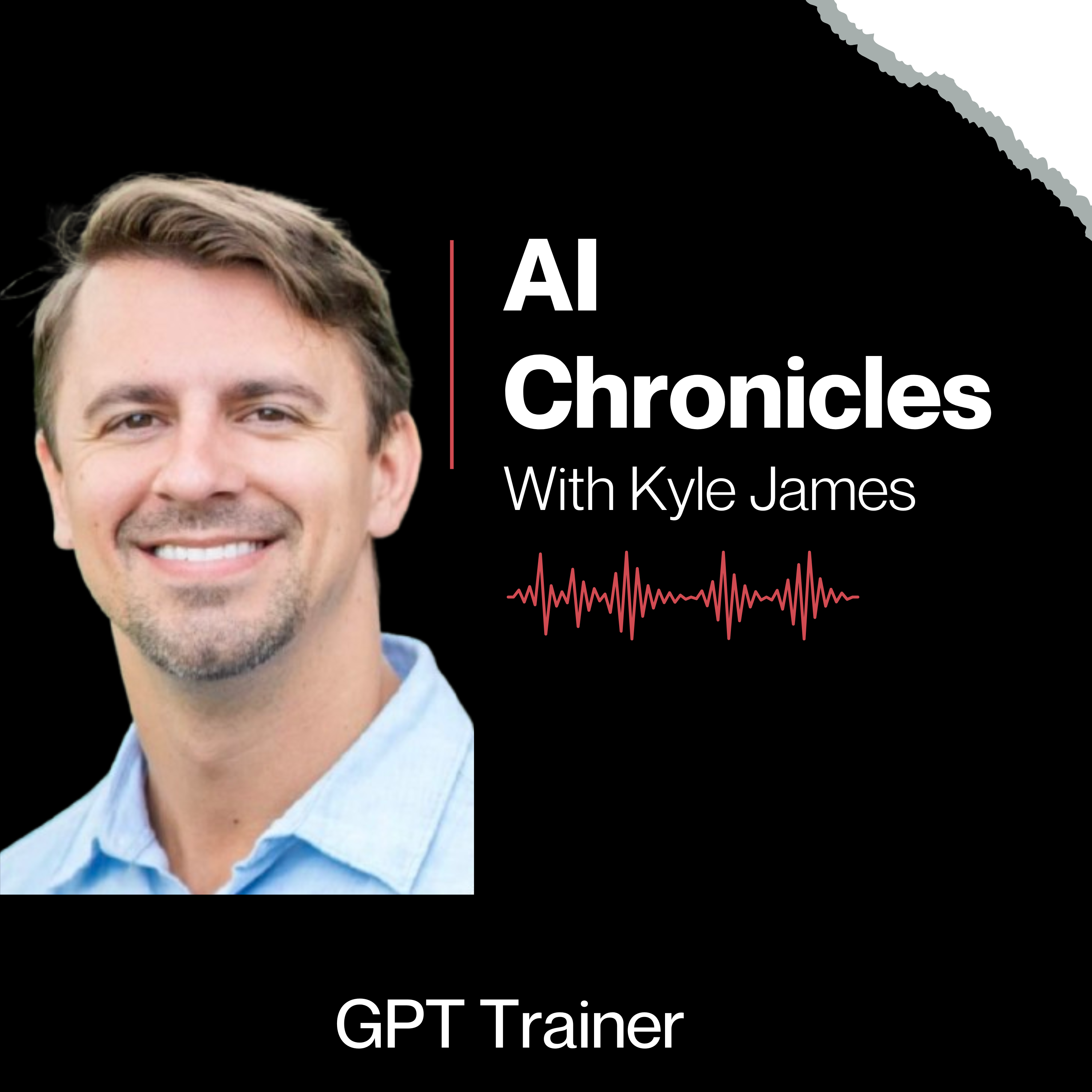Episode Transcript
Kyle James (00:01) Hey, welcome to the AI Chronicles podcast. I'm your host, Kyle James. Today we're going to be exploring how a mission focused consultancy company called Creating Community Consulting is helping nonprofits and value driven teams build truly inclusive, thriving cultures. If you're a community engagement leader, or if you just work in the civic innovation space, then you need to listen closely. Have you found your AI agent hallucinating or just mishandling basic conversations? Karen Pifher (00:24) Okay. Kyle James (00:29) It's time to speak to GPT trainer. GPT trainer fully manages your AI agent for you, eliminating hallucinations for good. Visit gpttrainer.com to learn more. our guest on our show today is Karen Pfeiffer, who is the founder and co-owner of Creating Community Consulting, a mission-driven organization dedicated to helping community-focused leaders and organizations cultivate inclusive, equitable, and engaged cultures. Karen Pifher (00:42) Okay. Kyle James (00:57) the deep background in nonprofit leadership and social impact strategy, Karen brings over 15 years of experience in community building, facilitation, and organizational development. From all the way from navigating the growing pains of launching a consultancy to now partnering with regional leaders and national nonprofits, Karen's path is powerful example of translating passion into purpose. Hey Karen, welcome to the show. Glad to have you on. Karen Pifher (01:28) Good morning and thank you. Glad to be here. Kyle James (01:30) Yeah. So let's, let's jump into it. So walk us through a little bit more here, kind like your background, but I mean, from reading some of your notes here, you went from a teen mom with no money to feed your child to leading a community development across the state. Like walk us through that process. How did that happen? Karen Pifher (01:49) Absolutely. Yeah, so I grew up in rural Minnesota in a small town and as a teenager got in a very unhealthy relationship, ended up pregnant and having my oldest son when I was 16 years old. And at that time, one of the leaders in the school pulled me aside and had said there was no shame in dropping out of high school and I was just so... That felt devastating. And so thankfully I had a strong family who could help support me and I did finish high school. but I couldn't complete college because there weren't a lot of systems in place to help me at that time. And so I ended up, moving on life happens, you know, ended up getting married, having two young children after my oldest. And then we, my husband and I at the time dairy farmed. And we love farming with the kids. We even built our own barns. Like we fully launched. And and you know, this was right up till the recession. And I remember the day that I sat on the floor of the milk room and opened the milk check. And it literally was half of what it was supposed to be. And it wasn't enough to even cover our feed bill that month. And that's when I knew. Kyle James (02:45) Nice. Mm. Mm-hmm. Karen Pifher (03:05) Like we couldn't do that anymore. And I was angry in a good way, is what I would call it, because I was dairy farming. I was raising three children. I worked as a CNA in a nursing home in the area. I helped my husband with his side business. Like you couldn't find people that work more. And I kept hearing like, well, if you just work hard or you can like make things happen. And it just wasn't. Kyle James (03:21) Right. Karen Pifher (03:30) getting there. So then I decided to go back to college. A good friend of mine really encouraged me and I had great family support and so ended up finishing my AA, went right into getting my social work degree. I went to work at a healthcare organization not long after that and was in the social work department, ended up moving up into managing the social work department within a year. And then I really felt like I loved doing the work, but the problem was I could help as many people as I wanted, but a lot of times it wasn't very successful because the systems that we operate in are broken. And I wanted to figure out how to fix those. How do you change the systems or communities to be better? So I enrolled in my masters in community development. And through that time, I then was promoted to leading community health as well for the healthcare organization. And the last few years I was there, I led the community health needs assessment and community health implementation plan across five different counties in Minnesota. And through that, I really tried to dig in because I felt like a lot of times we were telling ourselves that we're doing really good work. Kyle James (04:42) Mm-hmm. Karen Pifher (04:42) but the data metrics don't change, right? And so like the percent of people experiencing poor mental health, they're not getting better. And I wanted to know how to actually shift those and move those. And so I dug into additional training that was available and tried to find information everywhere I could to be able to adopt those frameworks and figure out how to actually shift metrics in our community. And through that process, I love doing the work. And then when COVID hit, allocated resources changed and, you know, there was a pandemic and so things looked differently. And I got tired and I felt called to be doing something different. And I really thought that there was an opportunity to be able to do community-based work through a private organization. So in April of 2022, we launched or I launched Creating Community Consulting. Kyle James (05:19) Right. Karen Pifher (05:39) with a hope and a prayer that it would work and I could do good things. And fast forward, we're going into our third full year and we have 12 employees, three different locations in Minnesota and are working in 20 counties and beyond. And so it's just been an incredible journey. Kyle James (05:39) Yeah, That's That's amazing. now you've, you've got, I mean, obviously growing to a team of 12 and, scaling in the Minnesota area, you've got a couple of different, I guess, organizations you're working with, but what, what are some of the struggles that organizations face though, um, that in order to be able to change their community and make it a better place to live. Karen Pifher (06:19) Yeah, absolutely. So the one thing we know universally is that all organizations want to do good, right? That's their intent. Where they get hung up is that they don't have a technical skilled grant writer or a capital campaign person to leverage funds. So most communities have people that know what they need and they know what they want and they have the best ideas. They just don't know how to leverage resources. Kyle James (06:19) Mm-hmm. Karen Pifher (06:45) They also maybe don't know where to start. A lot of times when we're working with organizations, like, we have this great idea, but I have no idea how to make it happen. ⁓ And so really they're looking for training and direction. And so those are two of the really big things that we see quite often is like, where do I start? Or they get really focused in one area and they get stuck. And instead of being able to work through it, things start just kind of falling apart. And then it's hard to get it back together. And so Kyle James (06:52) Mm-hmm. Karen Pifher (07:13) Yeah, we've really seen those being like the three things that impact organizations and keep them from being able to do good work. It's not that they don't have the ideas. It's not that they don't know what their community needs. It's not that people don't care. It's that they literally just need training and tools to be able to do it. Kyle James (07:31) Yeah. And so that's some of the things that your, your, your team provides is, is not just the process, but also the tools and the training to be able to figure out what, what they're supposed to do in the first place. Like they might not even know, but you're kind of given this like a la carte of, of resources for them to be successful and talking a little bit about that. So I know recently we, Karen Pifher (07:49) Yeah. Kyle James (07:53) You you showed me that as far as on the AI side of things, you've been implementing some AI to help with the process. But how has that process changed though, since you've added AI into that? Yeah. Yeah. I said, like, how has your process changed thanks to AI being implemented in your process now? Karen Pifher (08:04) Yes. Sorry, could you repeat that quick? Yeah, absolutely. So one of the things that we're really big on is being able to come alongside an organization and understand where they are at so we know the right things to be able to produce for them. And there are several things, like I said, training tools, you know, that people needed. And so we leveraged AI to build our own grant writing software. We're also leveraging AI to do marketing software and other things. And so our grant writing software specifically is really powerful. It does a number of things. So with a membership, you get an organizational assessment that gets completed and it tells you if your organization is ready to apply for a grant or not. And not just apply, but to be able to manage it as well. So several times organizations think they're ready and they're not quite ready. And there's a number of things that it goes through and it provides checklists and like asks you detailed questions and it's like fill in the blank answers. And then it'll give you an organizational profile that has your overall data related to your target population. Kyle James (09:05) Mm-hmm. Karen Pifher (09:20) it's going to have a full assessment of like, are you ready for each section? And if not, what are the resources that you need access to, to be able to be ready so that you, and what steps do you need to take to be able to do that? So that's really the first part. The second part is a grant binder. So you upload your organizational profile and then you can put it into our grant binder. And instead of producing a, massive amount of grants that you have to search through what it really does is homes in on what are the top 10 grants because what we found is people spend a lot of time searching databases and and they don't have time to spend so we really help them narrow down and and and focus on like what are the things right in front of you that you can focus on Kyle James (10:04) So it's almost like instead of them spending a lot of time searching high and low for which grants to apply for, the AI that you've set up is making it easier for them to identify, here are the top 10 grants that you actually are most likely to get approved for versus spinning. 90 % of your time on grants that you're probably not going to approved for. OK. Karen Pifher (10:25) Exactly. Yeah. So like almost just under a 90 % success rate and that's because we're really good at identifying link. Karen Pifher (10:35) what it takes to be successful and being able to piece together work plans. Because I've been writing grants for forever. Kyle James (10:42) Yeah. Yeah. And before that, or I was going to say before that though, like what was, what was it like initially, like kind of like step-by-step for your organization to, know, if someone's trying to apply for a grant, what do they initially have to do to get through and, and what's how's AI changed that? Karen Pifher (10:59) So normally when somebody was going to apply for a grant if they were working with us, we would sit down and go through these questions in person. So you're paying for all of our time together. And then we would go through and we would have to do manual research or pay, you know, $300, $500 a month for a subscription to somewhere to find grants. Then you have to search through the grants to see which ones are the most applicable. And then when it comes to writing a grant, you would have to do all the research. to pull the data related to the target population and not just the high level data. Like you always need data about your geographic area you're serving and why you're serving that area and those people. But then also to pull out the disparity of like why you, why now. That really highlights like that this is urgent above everything else. And we would take hours doing that. And then you have to create a work plan with all of your partners. And that would take multiple meetings and hours of people getting together and being able to contribute to creating a work plan. Our software does all of that with you. And so it does the organizational assessment, gives you recommendations. It does the research on which grants are good for you. It also has a grant writer function. And so what this does is it uses a closed AI system. It does all of the targeted research about your or target population and pulls that out. And then it specifically gets into like research where it pulls in the disparity within the population. So specifically how a, like maybe a subgroup of people is specifically impacted more than even your geographic area compared to the state or nation. And so it does a really great job of giving you those bullet points in two different sections and why they're important when you're compare yourself. And so, and then after it does that, you fill in the blanks in the AI. Kyle James (12:51) Yeah. Karen Pifher (12:58) the AI writer and it's a lot of Q &A and what it does is it takes all the information about what your idea is and what you're trying to do and it creates a full work plan. So it will create based on what you tell it your goal is. It's going to help you create a smarty goal of how is it specific, what are you measuring, what is your target, when is it going to be due by, how are you going to measure a true outcome or result. It also then brings breaks down each activity into subsections. So it's going to say, here's your first activity, here's who is responsible, this is how we're going to measure if we're successful at that. Here are the steps that we are going to be necessary to achieve that goal. And then here's the budget that it's going to take to accomplish this activity. And it breaks down all of them. And so you can sit down and in 20 minutes, I can fill this out and it will spit out a complete work plan with measurable actionable goals with an aligned budget showing me everything. Kyle James (13:56) Wow, that's incredible. how much time, I mean, it sounds like it does a lot of the legwork for you and for the clients. How much time did it initially take to do all that before the AI? then, you know, what kind of results do you think your clients are seeing from your platform? Karen Pifher (14:11) Yeah. Yeah, on average it would take about 20 hours to a grant. It depends on what kind, right? There's small grants that take maybe four to five hours. lot of them take more like 20 hours, if you count all the time it takes. And then when you get to state and federal, you're looking at 40 to 140 hours, depending on. So a grant that would take me 20 hours before takes me less than four hours. And most of that is just coordinating with people, like verifying information. Kyle James (14:34) Wow. Wow. Karen Pifher (14:49) And then texting, know, being able to go back and forth and look at that document and be like, does this look accurate? What would you change? And so, yeah, it completely eliminates all of the legwork that you had to do manually and it helps do it for you and make it easier. Kyle James (15:04) Yeah, it's incredible. I love that. It's pretty powerful how much AI can just transform the way. I mean, going from 40 hours or 20 hours down to, you know, less than an hour or even less than four hours is huge. Karen Pifher (15:10) you Kyle James (15:20) amount of time savings. I would imagine too that's probably means more grants you can apply for versus if you're like, I've spent 10 hours on this. I'm kind of, I'm done. I don't want to, I don't want to apply for any more grants. Let's see what results I get. But in this case, they could still spend 10 hours if they wanted to, they might be able to apply potentially even to more grants if they wanted. Karen Pifher (15:25) Yeah. Absolutely. You can apply for more grants and honestly I've been grant writing for a long time and I've been a grant evaluator and where organizations really get hung up is in the work plan because a grant funder might not even ask you for a work plan straight out. Usually the state and federal ones require one but if you're doing like a regional or local grant they're not going to ask you for a work plan but that is exactly what they want from you in a narrative form. And so where people really get hung up is that they don't have a good work plan. So when you look at what their narrative says they're going to do, how they're going to measure it, who's responsible, and then how much your budget costs, those things typically don't match. And so in the budget, they might have one item here, but I don't see it in the narrative or like, I don't understand how they're going to measure change and how does that collectively lead to this overall result they're trying to achieve. And so what this does is takes all the guesswork away from that. it ensures that your technical skills are complete and that they're done to a high level. So when you're, you still need to write the narrative, right? This is just a tool. A lot of grant funders are turning away grants that are AI written. So don't, don't. Kyle James (16:44) Of course. Hmm. Yeah. Yeah. Don't, don't, don't use it all. AI you gotta use humanize it a little bit. Make some mistakes. Karen Pifher (16:56) They need your story also from it. But what it does is it takes the guesswork and the hard work out of it so that you can spend your time efficiently. It does the data pulling for you. That's huge. mean, it'll give you more data than you have before, unless it's very specific to your program, but then you can add it. it's going to give you so much data and so much value in just how it organizes information. I've even used it for other departments that were like, I don't know how I fit into this, but I really have heard about this tool. And I sat down with the communications manager and went through how this work plan development could work for her in organizing her department and how they deliver services. And so it's very powerful. Kyle James (17:38) Yeah, that's amazing. And if now for those who are listening in, as far as like the, you if an organization is looking to apply for a grant, where can they go to maybe learn a little bit more about you and what you do? Karen Pifher (17:52) Absolutely. So creating community consulting dot com is our website page and under there you're going to see about our organization and then there's a page that's the AI grant accelerator. That has a lot of information about our grant writing software. Really what it is is we have it available mostly so that people can get an easily accessed membership. It's low cost. It saves you thousands of dollars a year. And once you have it, you have access to not only all the software, but then we also do a live community of practice every couple weeks over lunch where we're going to go live with you. You can bring up your grant. You can say, I'm stuck here. We're going to go through with you. I'll help rip it apart and put it back together in a meaningful way. and we're gonna help coach and talk about new grants that are coming out, nuances, tips and things such as like if a grant is invite only, how do I get an invite to the table? We're gonna go over a lot of those things that we've learned over the last 20 years and be able to share that knowledge so that rural communities can be more competitive in that space specifically, but it works for all organizations. Kyle James (19:03) Awesome, great, amazing. So we're going to wrap it up from here. Thank you so much, Karen. Appreciate you joining us and sharing the powerful work that you're doing through creating community consulting. Obviously, you guys are doing amazing work here. So again, if you're a community engagement leader or you work in that civic innovation space, you need to check out gptrainer.com and learn a little bit more. See if your AI agent is hallucinating or just mishandling basic conversations. We're going to wrap it up from here. Hope you have a wonderful rest of your day. Look forward to seeing you on the next episode of AI Chronicles. Karen Pifher (19:38) you



